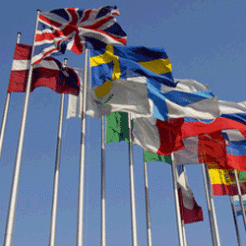The Council of the European Union has released a report into the role of voluntary activities in social policy, concluding that “volunteering activities can not replace the overall responsibility of the state to ensure and provide economic, social and cultural rights”.
The message was one of 39 points highlighted for consideration by the European Commission in the Council’s report issued on Monday (3 October) following its latest employment, social policy, health and consumer affairs council meeting.
The report coincides with a Directory of Social Change survey which reveals that charities in the UK believe there has been very little increase in volunteering as a result of the Big Society agenda, the UK government's unprecedented decentralisation strategy.
Only 5 per cent of respondents to the survey of 500 charities thought that more people were volunteering as a result of the Big Society, while 95 per cent concluded they were not. Rather, comments left by respondents suggested a belief that unemployment was likely to be a greater driver in increasing volunteering.
But the EU Council report warned that voluntary activities "should by no means replace (paid employment)" and "should not encourage employees' reduction of working time or withdrawal from the labour market".
However volunteering should be encouraged for its contribution to the growth and strengthening of social capital and as a catalyst for social change, it said.
DSC’s research project manager Tom Traynor said the government “has its work cut out” to boost volunteering via the Big Society remit, which Prime Minister David Cameron highlights as a shift in responsibility from government to communities. Launching the Big Society in Liverpool on 19 July 2010, Cameron said: “You can call it liberalism. You can call it empowerment. You can call it freedom. You can call it responsibility. I call it the Big Society.
“The Big Society is about a huge culture change...where people, in their everyday lives, in their homes, in their neighbourhoods, in their workplace…don’t always turn to officials, local authorities or central government for answers to the problems they face…but instead feel both free and powerful enough to help themselves and their own communities.
“It’s about people setting up great new schools. Businesses helping people getting trained for work. Charities working to rehabilitate offenders.”
Barriers to volunteering
But the EU Council report highlights unequal supportive conditions at local, regional, national and European level as an existing barrier to unleashing the full potential of voluntary activity.
It invites the European Commission, and the UK as a member state, to “promote favourable conditions for developing voluntary activities” and to “support the development of civil society organisations (as key promoters of voluntary activities) at local, regional, national and European levels…”
The EU Council report is released as part of the European Year of Volunteering and bolsters previous recommendations for increasing volunteering such as the introduction of a European Volunteering Skills Passport and the promotion of e-volunteering as an innovation in volunteering.









